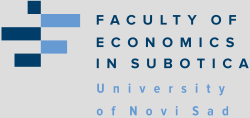The COVID-19 Virus Pandemic in the Context of Strengthening Ethnocentric Consumer Tendencies in Serbia
DOI:
https://doi.org/10.46541/978-86-7233-406-7_181Keywords:
Covid-19 , Consumer ethnocentrism, Consumer xenocentrism.Abstract
The process of globalization has diminished the importance of national borders, a large number of companies have internationalized their business, so that consumers in the process of buying have at their disposal many foreign brands. However, the Covid-19 virus pandemic has caused significant geopolitical tensions, as well as economic consequences, as the closure of borders has hampered foreign trade in products and services. During crisis situations, citizens develop a sense of patriotism and national consciousness. Consumer ethnocentrism is often a cohesive factor that unites citizens, so they try to strengthen the national economy by buying domestic products and services. Empirical research using a survey method was conducted with the aim of determining whether the level of consumer ethnocentrism of Serbian citizens has increased compared to the period before the Covid-19 virus pandemic. Also, the goal is to determine whether the level of consumer xenocentrism, as a concept based on the purchase of foreign products and services, has decreased compared to the period before the pandemic. The collected data were processed through the statistical software of SPSS. Descriptive statistical analysis was used in the research, as well as a paired T test to prove research hypotheses. The results showed that after the pandemic there was an increase in consumer ethnocentrism, as well as a decrease in consumer xenocentrism among Serbian citizens, so the research offers useful information to marketing managers, which may be important when formulating an adequate marketing strategy.



